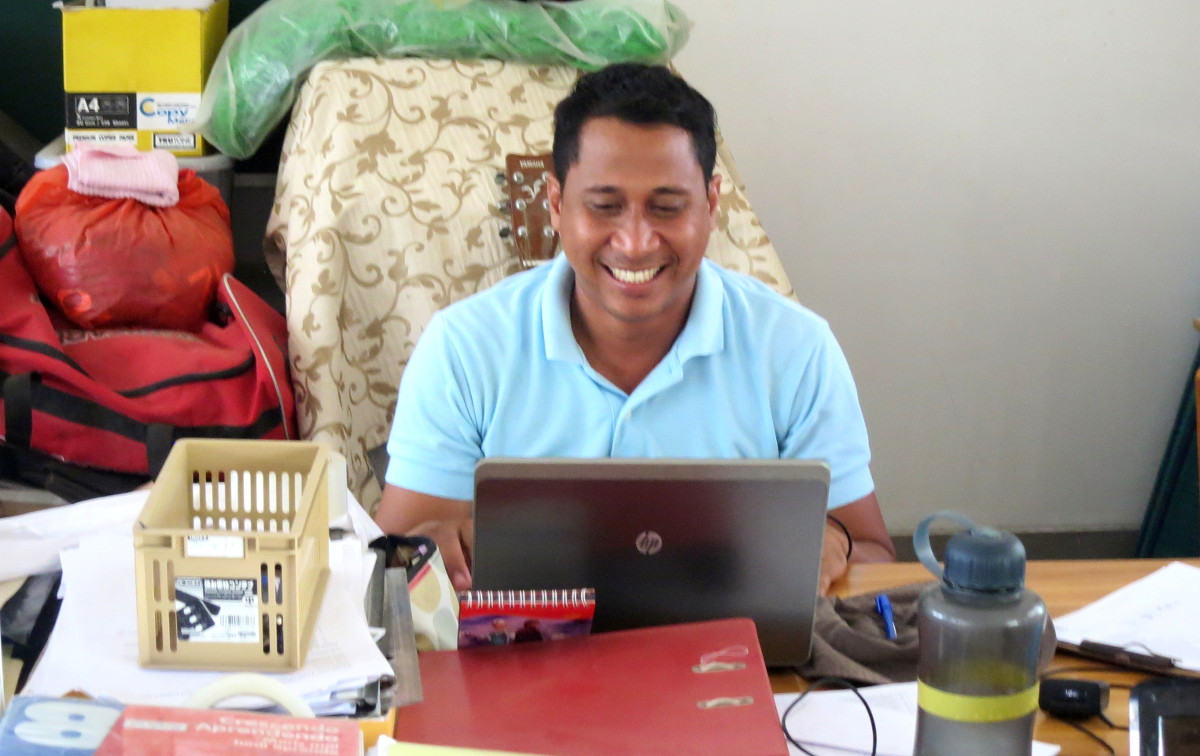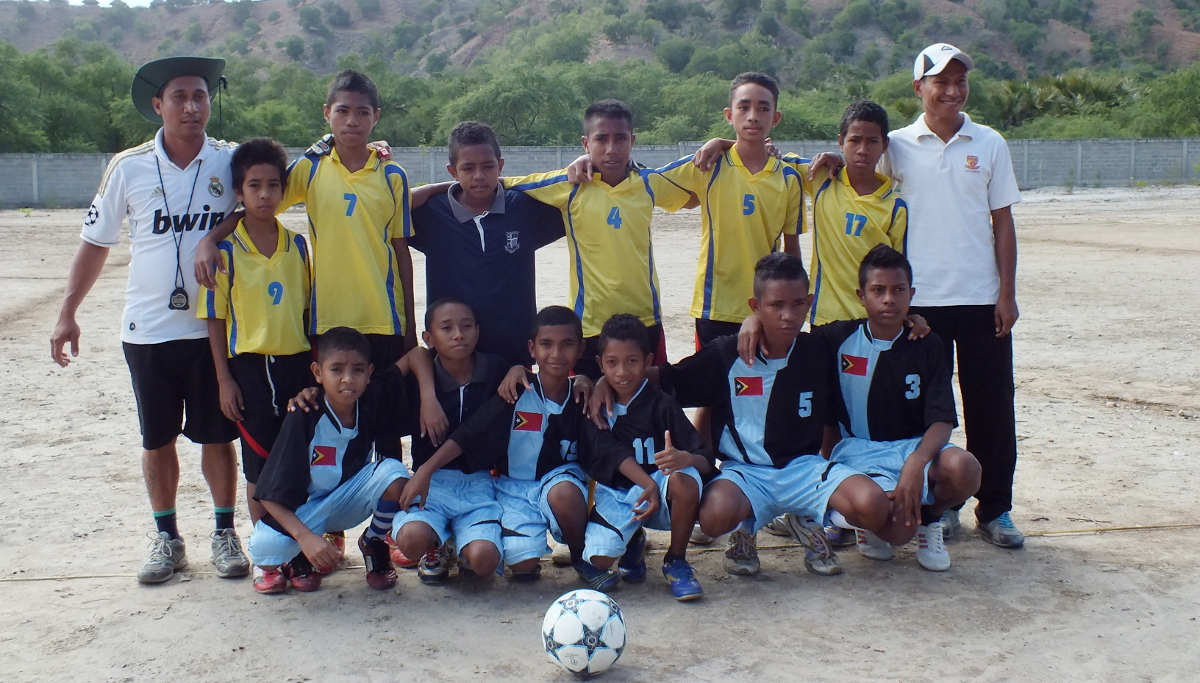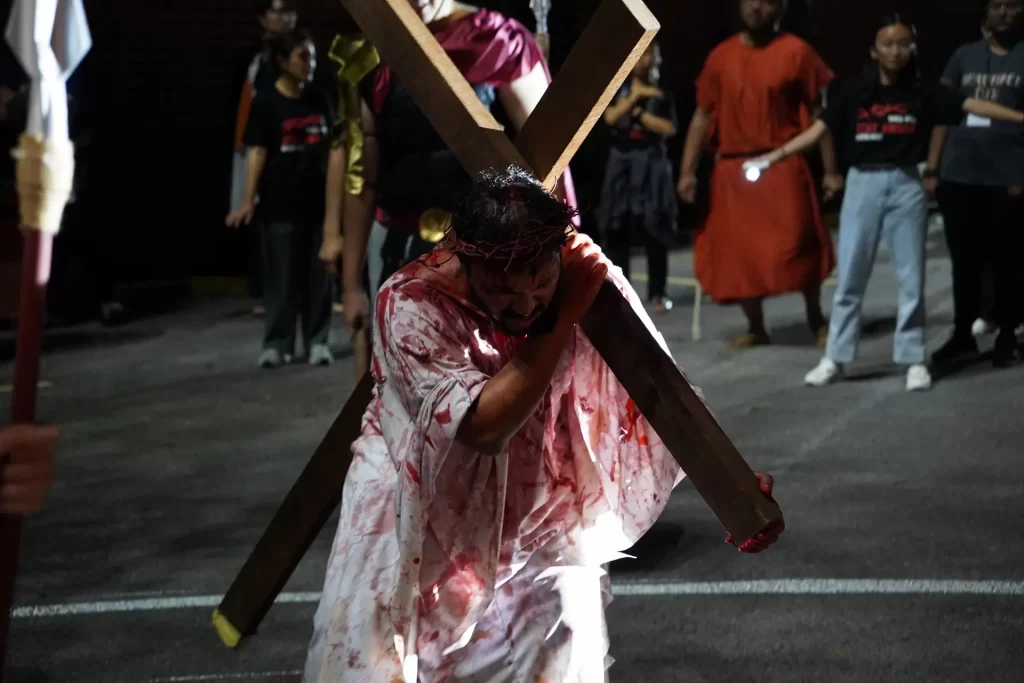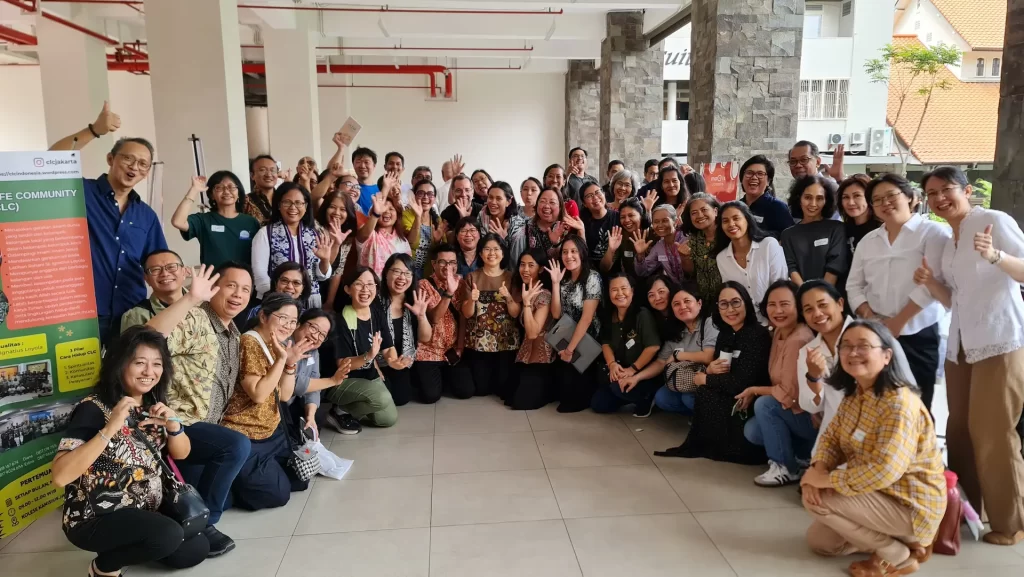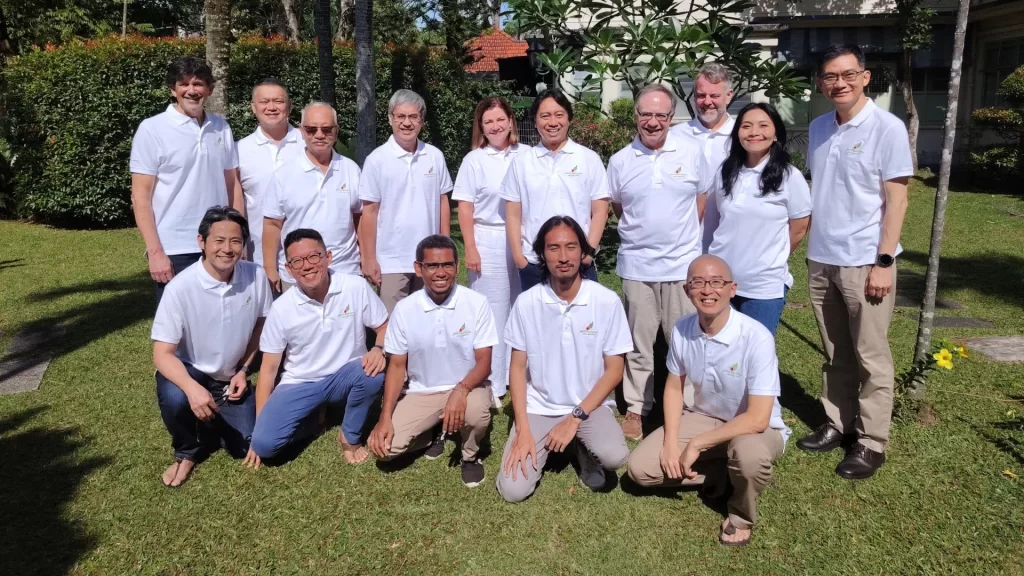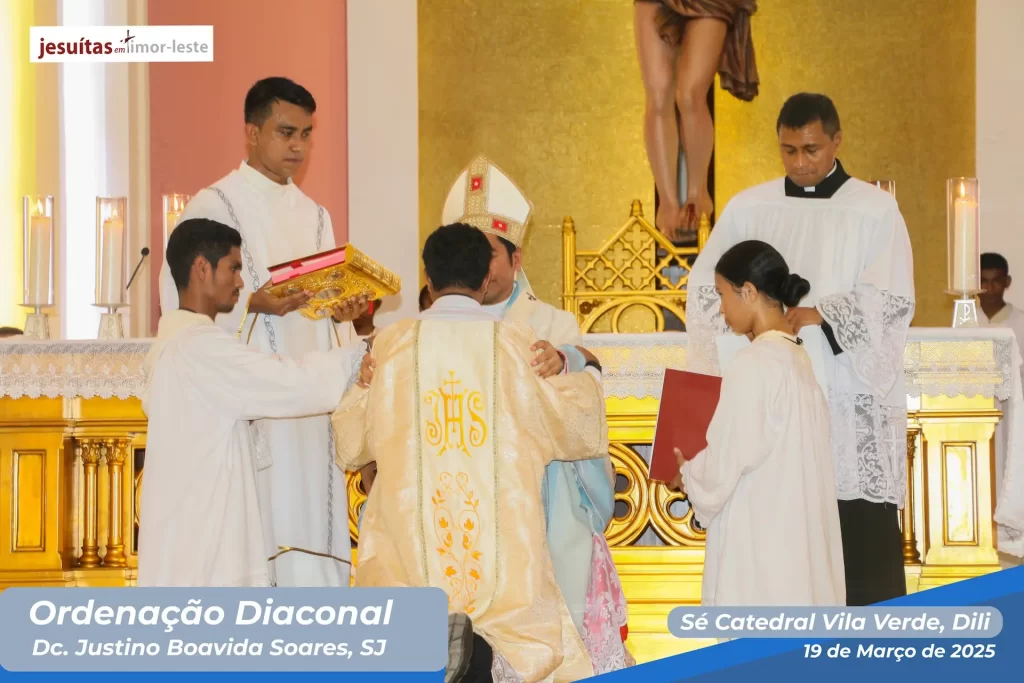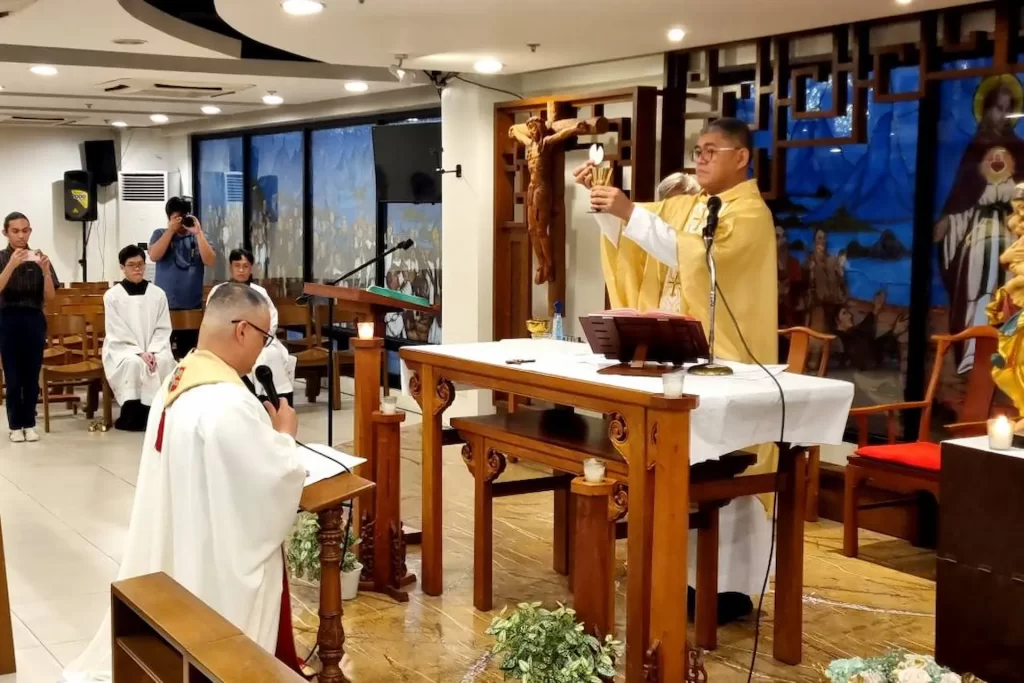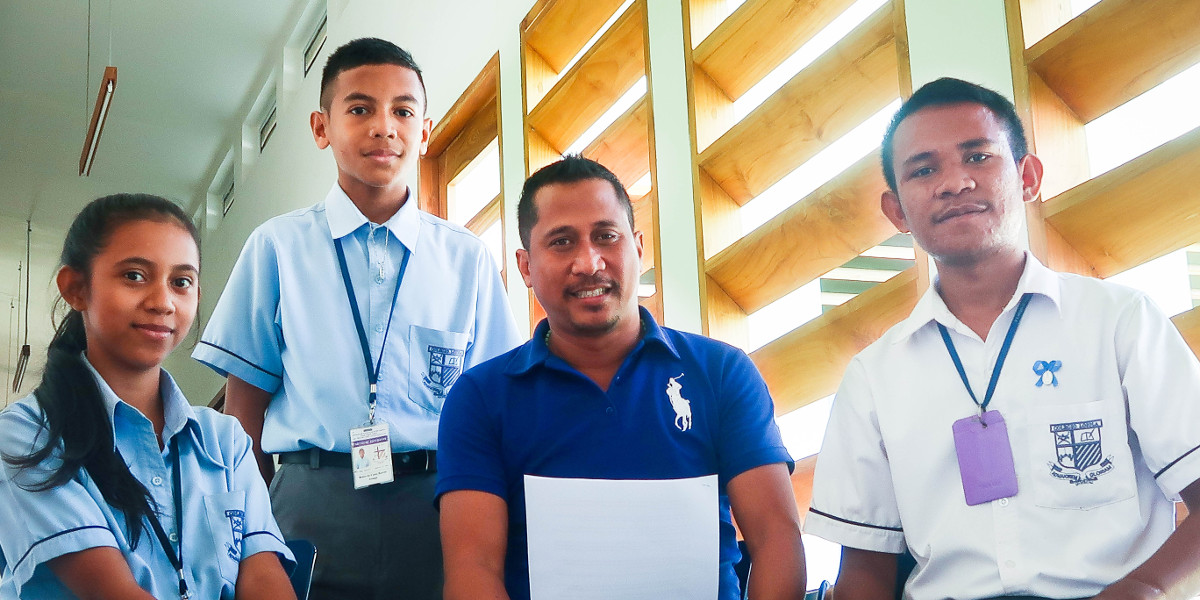
In 2006, Timor-Leste experienced a political crisis that saw the disintegration of the military and police forces, and resulted in widespread violence.
“As a soldier, I just followed orders. We were asked to take our rifles and to report at the residence of the president,” he recalled.
Carvalho was sentenced to 16 years in prison, but was released after two and half years on parole granted by the president who had been wounded in the attack.
It was his stint in prison, Carvalho says, that led to his conversion.
“My stay in the prison was new to me. I learnt about God’s word through reading the Bible. Every night, before going to sleep, I read the Sunday readings. I sang the Psalms and played the guitar in the chapel.”
But he admits that after two years, he felt like “it was too long” and he became tired of attending Masses. Until one Sunday when Canossian Sisters paid a special visit.
“One of the sisters said, ‘Jesus never abandoned you, and He is always with you. Jesus listens to your prayers. He listens more intently to you who are inside this prison than to us who are outside, free.’
“At that moment, I felt very strongly in my heart that I will never be alone, and right there and then, I trusted that one day, I shall also be free,” he recalled.
Carvalho first met a Jesuit priest in prison. He had never heard of the Jesuits before.
“One Sunday, a Jesuit priest celebrated Mass with us. He knew about the situation of the country and he knew about us, so-called military rebels. He spoke about the life of St Ignatius of Loyola as a military like us. I was very inspired and I wanted to know more about the Jesuits.”
After his release, he visited Colégio de São Jose, a diocesan school run by the Jesuits, and met with the school’s director, Fr Plinio do Rosario Gusmao dos Reis Martins SJ.
“I realised that as an ex-prisoner he would have a hard time finding a job,” shared Fr Martins. “My heart couldn’t let a young man go wandering around without a permanent job. For me it was a waste of life.”
Fr Martins hired Carvalho as house coordinator. “At the time, I had the sense that he was a different man. He had made a bad decision and became a victim of politics, but the experience in prison had changed him to be a better person.”
Then the Jesuits turned-over Colégio de São Jose back to the diocese of Dili. This move left the Jesuits free to pursue a separate education project to help meet the immense need in the country for quality education.
“I heard that the Jesuits were opening a new high school in Kasait,” related Carvalho. He applied at Colégio de Santo Inácio de Loiola (CSIL) and Fr Martins was pleased to recruit him.
“Gil is a very competent person. He has skills that others do not have. He is intelligent and very sensible. In his relationship with students, he tries to use his own experience to help them. He is very kind and compassionate,” said Fr Martins.
At CSIL, Carvalho is surrounded by young men and women who flock to the campus wanting a better future. The very students he instructs inspired him to pursue his university studies in developmental politics. “Maun Gil,” his students had asked him, “you know many things, why don’t you finish your college degree?”
Carvalho is not wasting his second chance in life: he is the Student Activity Coordinator, Student Council Adviser, Assistant to the Disciplinarian, Transportation Coordinator and Maintenance Supervisor. All this, while he studies at night.
“I am happy that he is doing very well. I think in a year’s time he will be finished with his bachelor’s degree,” said Fr Martins.
Carvalho loves the school and wants the best school for future generations, but instead of taking up arms, he wishes to have better systems in place and more on-going formation programmes.
“I hope that in the future, our CSIL students will become true human beings for others. I hope that they shall become good leaders, responsible, compassionate, with formed conscience, and competent, in order to achieve the East Timorese dream of a good future.”

